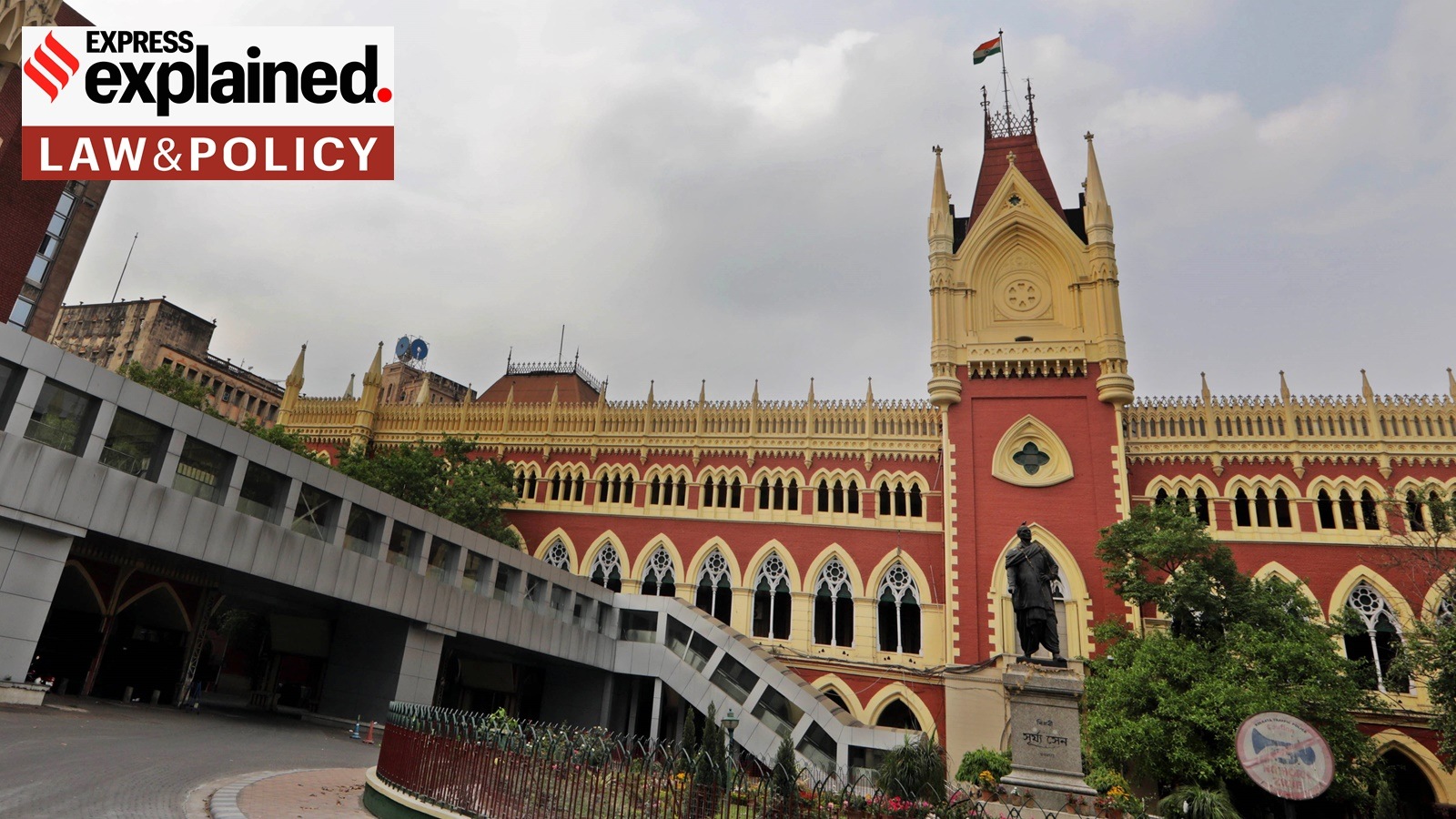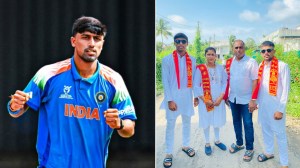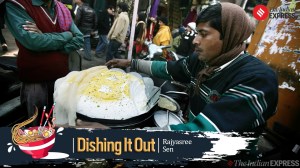BJP ads against TMC: Why SC declined to entertain BJP plea against Calcutta HC order
What did the BJP ads say, and how did this matter reach the top court? What had happened in the Calcutta HC, and what did the HC say?
 The Calcutta High Court had said the BJP's ads were directly contradictory to the MCC, and violative of the citizens’ right to a free, fair, and untainted election process. (Express Photo by Partha Paul)
The Calcutta High Court had said the BJP's ads were directly contradictory to the MCC, and violative of the citizens’ right to a free, fair, and untainted election process. (Express Photo by Partha Paul)The Supreme Court on Monday (May 27) refused to entertain a challenge by the BJP against a Calcutta High Court order restraining it from publishing derogatory ads against the Trinamool Congress.
A vacation bench of Justice JK Maheshwari and Justice KV Viswanathan said the ads were prima facie “disparaging”, and “we are not inclined to interfere [with the HC’s order]”.
“…You can say you are the best…but…we don’t want to lend our hands to promote further acrimony… This is not in the interests of the voter. This will degenerate… Don’t precipitate the issue…,” the Bench told counsel for BJP, according to LiveLaw.
The counsel then withdrew the petition, and was allowed by the court to file a reply before the single-judge Bench of the High Court. What is this issue?
Proceedings in Calcutta High Court
On May 22, a Bench of Chief Justice T S Sivagnanam and Justice Hiranmay Bhattacharyya dismissed a petition challenging an order passed by a single-judge Bench of Justice Sabyasachi Bhattacharyya on May 20 restraining the BJP from “publishing advertisements in any form of media which is violative of the MCC” (Model Code of Conduct) until June 4 (date of counting) or until further orders, whichever is earlier.
“A perusal of the impugned advertisements…clearly evince that those are in violation of the letter and spirit of the MCC… In the garb of advertisements, the…allegations and publications made against the petitioner are outright derogatory and definitely intended at insulting the rivals and levelling personal attacks against its functionaries,” the single-judge Bench had said.
The single Bench also said that “the ECI (Election Commission of India) has grossly failed to address the complaints raised by the petitioner in due time”.
In its challenge before the two-judge Bench of the HC, the BJP contended that it hadn’t been heard by the single judge, and that the May 20 order was passed in the absence of procedure. The BJP argued that it should be entitled to place its submissions before the court.
The two-judge Bench said it could not be “called upon to test the correctness of the order on the submissions which were never placed” before the single Bench, as the BJP had claimed.
“We are not inclined to entertain this appeal”, the Bench said — however, it said, the BJP was “not remediless”, and could still approach the single Bench for a review, modification, or recall of the order.
What the Model Code of Conduct says
In its arguments before the single-judge Bench, the Trinamool Congress pointed out that one of the ads, which read “Sanatan Birodhi Trinamool” (Anti-Sanatan Trinamool), was “diametrically” contrary to the Model Code of Conduct (MCC), which prohibits advertising along the lines of caste, religion, etc., even under the guise of news articles.
It also said that despite filing complaints with the ECI after each such publication, it had received no response.
The MCC, published on March 28 by the ECI, states that “criticism of other political parties, when made, shall be confined to their policies and programme, past record and work”, and “Criticism of other parties or their workers based on unverified allegations or distortion shall be avoided.”
The MCC also said that the party in power at the Centre or in the states shall ensure that no cause is given for any complaint that it has used its official position for its election campaign, particularly for the issuance of ads “at the cost of public exchequer in the newspapers and other media” and “misuse of official mass media during the election period for partisan coverage of political news and publicity regarding achievements” to increase the ruling party’s chances of winning.
The TMC also argued that the BJP had published these ads during the “silent period” of 48 hours ending with the hour fixed for the close of the poll.
The court said that the BJP’s ads were directly contradictory to the MCC, and violative of the citizens’ right to a free, fair, and untainted election process. It also said that print media should refrain from publishing unverified allegations against candidates or political parties, either directly or impliedly, as per guidelines issued by the Press Council of India (PCI).
These guidelines, issued by the PCI on July 30, 2010, ask members of the press to “not accept/publish any advertisement at the cost of public exchequer regarding achievements of a party/ government in power”.
The single judge had noted that the allegations in the BJP’s ads “are not in the form of news items, nor do they refer to any specific source for making the said blanket allegations… The name of the advertiser appears in microscopically small print, thus giving an impression that the same is a general article”.
- 01
- 02
- 03
- 04
- 05






































